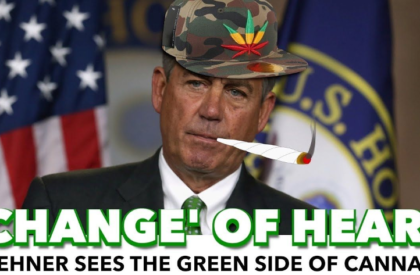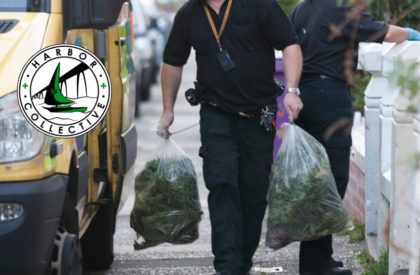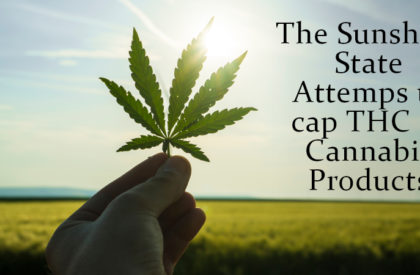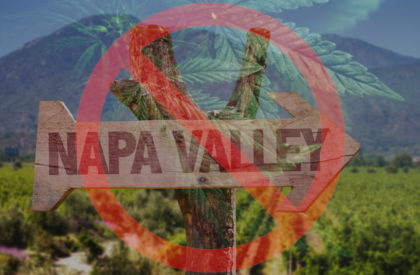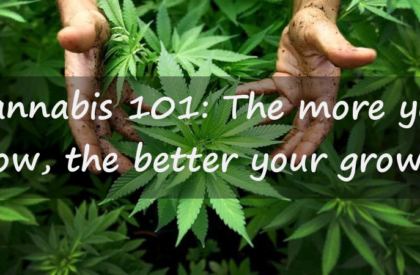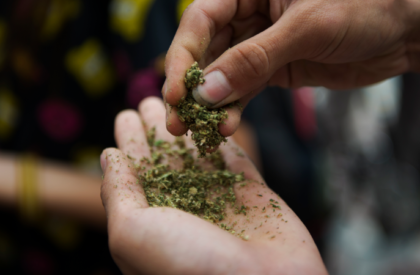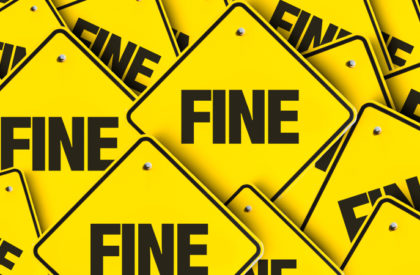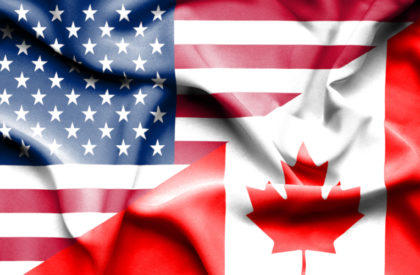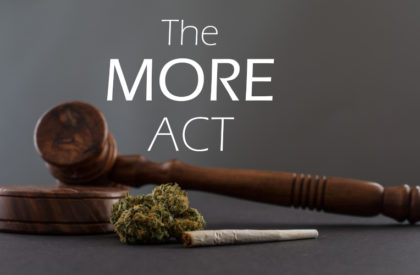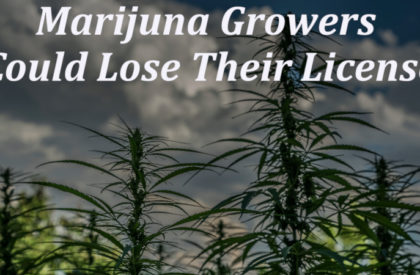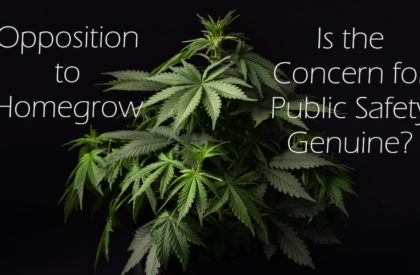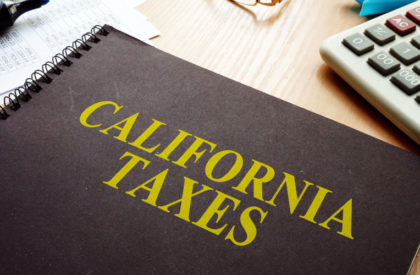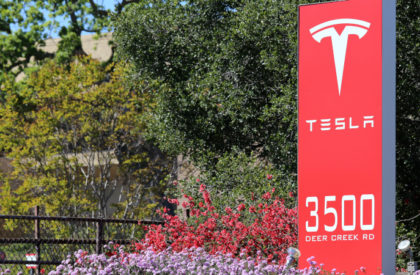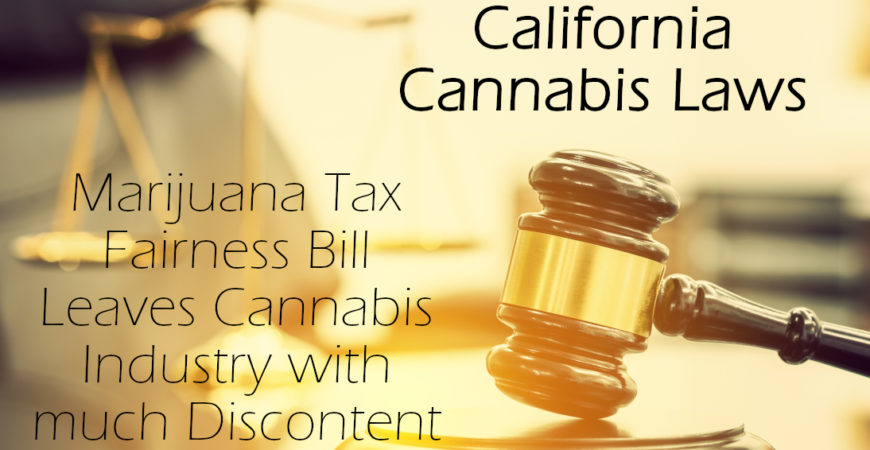
Marijuana Tax Fairness Bill Leaves Cannabis Industry with much Discontent
Gov. Newsom recently took action on more than a dozen marijuana-related bills.
California Governor, Gavin Newsom, enjoyed the support and backing of anyone with interest in the marijuana industry when he led the 2016 campaign for Proposition 64. The campaign saw the cultivation and sale of recreational marijuana legalized. It seems, however, that the governor is no longer enjoying the support of everyone in the industry following his latest move. While signing several pro-marijuana bills into law, the governor has also vetoed bills that are of major interest to many in the industry.
Yes to Tax Fairness but No Smoking in Hospitals, Buses, And Limousines!
Gov. Newsom took action on more than a dozen marijuana-related bills. Top on the list of bills agreed to is the one that voids a section of the federal law, 280E, which stopped marijuana cultivators, processors, and vendors from deducting expenses from their taxes. Now, licensed cannabis businesses will be able to make the deductions just like all other businesses under the new law AB-37.
Under SB-34, marijuana businesses can provide medical cannabis at no cost to low-income patients. The cost of such provisions will also be exempted from state taxes.
SB-153 was also agreed to. The bill requires state officials to develop an industrial hemp program plan and submit it to the US Department of Agriculture. The said plan will be worked in agreement with the requirements of the 2018 Farm Bill which saw the federal legalization of marijuana and its byproducts.
The Governor has also signed into law Jojo’s Act, the bill that will allow parents to supply medical marijuana products to their ailing kids at K-12 schools from day one of 2020. These products range from pills to creams and CBD oils.
Related Article: California’s Goal to Certification of “Almost Organic” Cannabis

Other bills that the governor has signed into law include:
- AB-404 on commercial cannabis activity and testing laboratories requires that cannabis and its byproducts be sold only once tested by a licensed testing laboratory.
- AB-420 on The California Cannabis Research Program extends the boundaries of cannabis-related research. It also proposes the mandate of scientifically researching the safety and efficacy of cannabis use for medical purposes to the University of California.
- AB-1529 on universal symbols on cannabis vaporizing cartridges directs that any cannabis cartridge or attached vaporizer must bear the universal logo in a visible position and size.
- SB-185 on cannabis marketing defines the various terms related to the product and its derivatives and terms of use. It also lays down the appellations and marketing standards.
- AB-858 on cannabis cultivation lists the types of state cultivator licenses that will be issued by the Department of Food and Agriculture.
- AB-1291 discusses the license application for medicinal and adult-use cannabis as well as the labor peace agreements.
- SB-595 gives directives on licensing procedures including waivers and deferrals on licensing fees. It also gives directives on the conditions for adopting emergency regulations by a licensing authority, and the percentage of waiver that shall be directed to local equity applicants and licensees.
But bill SB-305 has been vetoed which would have allowed health care facilities to permit the use of medical cannabis among terminally ill patients while on premises. Similarly, bill AB-1810 has prohibited smoking marijuana in party buses and limousines. But this move has rubbed some of the stakeholders in the marijuana industry the wrong way.
Related Article: Opposition to Homegrow – Is the Concern for Public Safety Genuine?
Are the Bills Passed Enough?
The bills signed into law have been read as vital in making the California hemp industry a key player nationally. However, stakeholders in the industry are, nonetheless, angered by the veto effected by SB-305 and AB-1810.
Vetoing AB-305, to stakeholders was a mistake, as it was struck down due to the possible conflicts it would create between state and federal laws on the issue, by allowing the use of marijuana in health care facilities. These facilities would consequently lose funds for medical care.
The discontent triggered by this veto is based on the realization that the federal government continues to consider marijuana as having little to no medicinal value. This is a move that puts caregivers and patients relying on cannabis and its byproducts in an unacceptable position.
The ban spelled out by AB-1810 is mostly based on the uneasiness about health risks that smoking cannabis in party buses and limousines would pose to drivers.
But a lot of people read the move against the consumption of marijuana in buses and limousines as detrimental to California’s tourism industry since these spaces provide an alternative for using the product at home. Besides, the move has taken away jobs and killed a lot of businesses that relied on leisure consumption of cannabis. This brings a negative impact on the overall economy of the state.



